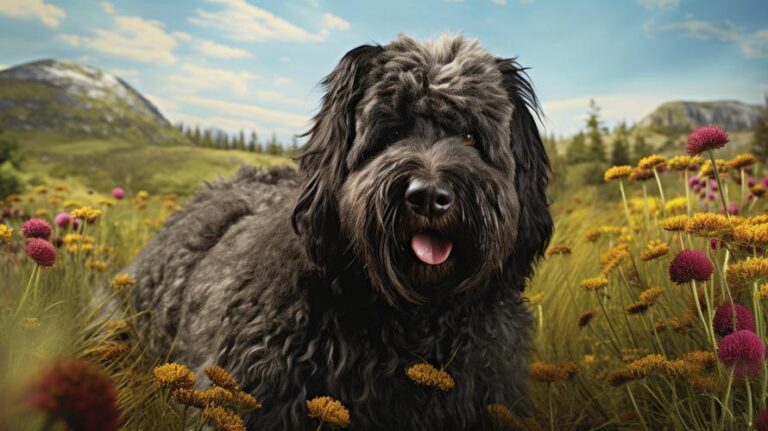Ladies and gentlemen, prepare for your minds to be blown away by the fascinating world of dog nutrition. You may be thinking: what could possibly be new or interesting about it? Well, let’s just tip our caps and venture into the captivating world of a Belgian Shepherd Dog, officially known as the Bouvier des Flandres. This breed is incredibly unique, not just in their imposing stature and trademark fuzzy, messy black coat, but their dietary needs as well.
Not many people recognize this, but the Bouvier des Flandres isn’t just a handsome, dignified canine, but a breed with a rich and intriguing history. Many moons ago (think late 19th century), these dogs were nurtured in the rural areas of Flandres in Belgium. The farmers there appreciated their sheer muscle power, tenacious spirit, and adaptability. From pulling carts to herding livestock, their keen intelligence and intense work ethic made them invaluable helpers.
Given their historical connections to such physically demanding work, it may not surprise you to discover that the Bouvier des Flandres, like any athlete, requires a carefully balanced diet to maintain their health and vitality. Let’s put it this way… imagining feeding a Bouvier des Flandres with generic dog food is like imagining a marathon runner fueling on fast food — it’s suboptimal and even potentially dangerous!
So, what exactly does this powerhouse need on its platter? Let’s delve right into it!
A serving of protein is the first order of the day. I’m talking about high-quality sources like lean meats, fish or eggs, not just ‘meat products’. A hefty helping of quality proteins supports their muscle development and maintenance, and provides a steady release of energy, so they can sustain their exuberance throughout the day.
Next up, we dive into the world of carbohydrates. Yes, you heard that right! While some view carbs negatively due to an association with weight gain, they’re crucial energy providers for dogs, especially active ones like the Bouvier. However, the caveat here is complex carbohydrates, sourced from items like sweet potatoes, brown rice, and oats, are more beneficial than simple carbohydrates like sugar or corn syrup.
Another essential component of the Bouvier diet is fats. While too much fat can cause weight problems, a balanced fat intake is beneficial. For this breed, fats give them a glossy, healthy coat and provide them with the necessary energy. So omega-rich fats such as fish oil or flaxseed oil are a great addition to their food.
Lastly, can we spare a minute for fiber? This oft-neglected star plays a crucial role in supporting a healthy digestive system. Considering the Bouvier des Flandres’s size, indigestion or constipation can quickly become large scale problems, so an adequate amount of fiber is non-negotiable.
Tempted to go generic now? I bet not!
However, while catering to the nutrient needs is paramount, it’s equally important to watch out for potential allergens. Some Bouviers may be gluten-intolerant, which means wheat-based products could be a no-go. Similarly, be cautious about dairy products, as some dogs don’t digest lactose very well. The key is to monitor your dog and adjust the diet according to their reactions.
Sounds like a lot of work, right? That’s where specialized dog foods come into play. These foods, engineered specifically for active and large breeds like the Bouvier des Flandres, tick all the right boxes, ensuring your dog gets not just the necessary nutrients but also in the right proportions.
Whew, and that’s a wrap— a tiny window into the nutritional universe of the Bouvier des Flandres. Yes, special dog food is not just a marketing gimmick but a genuine need, considering the specific dietary needs of this breed. They deserve it given their relentless loyalty, hard work and the joy they bring into our lives.
However, remember, like humans, each dog is unique, and what works for one may not necessarily work for another. So, consult a vet, do your research, understand your dog’s needs, and ensure they get not just the right food but also the love, care, and understanding they deserve. Let’s promise our four-legged friends that, shall we?



